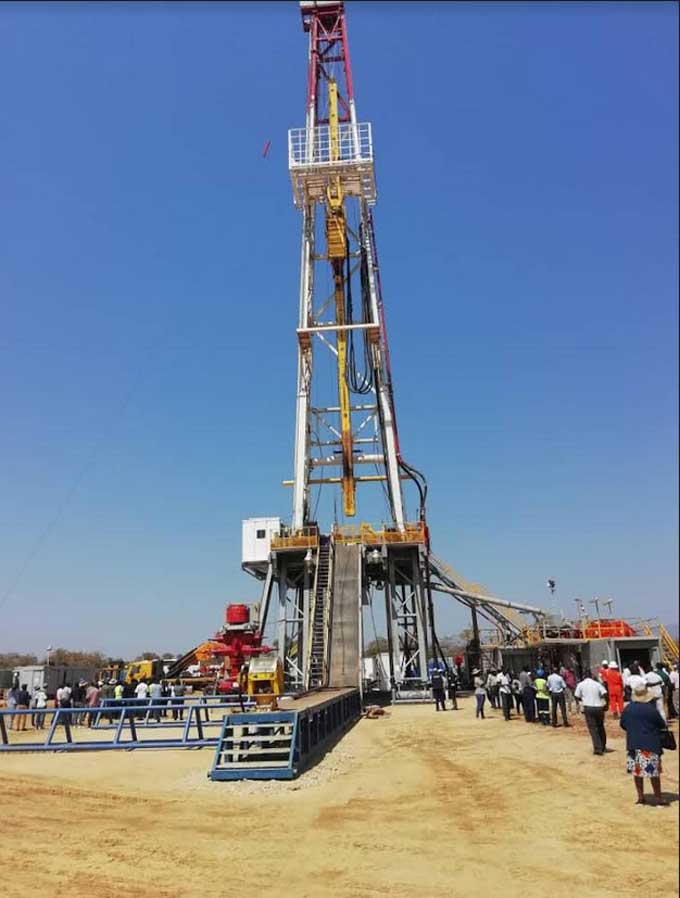
BY MTHANDAZO NYONI
ZIMBABWE’S sole ammonium nitrate production outfit, Sable Chemical Industries says it will double production to 200 000 tonnes a year by 2023 after getting a US$11 million boost from a regional lender.
In an interview with Standard business, chief executive officer Bothwell Nyajeka said the firm would deploy the funds from Africa Export Import Bank (Afreximbank) into refurbishing its fleet to improve transportation systems.
The firm is a vital pillar of Zimbabwe’s economy as it produces a key ingredient in the production of fertiliser that supports its agro- based economy.
After many years of poor rains, the recent few seasons have been good and this year, forecasters are projecting an even better rainfall season.
This makes Sable’s role important on the economic landscape.
“The drawdown of the US$11 million facility from Afreximbank started in July this year,” Nyajeka said.
“The facility is going towards plant refurbishment and boosting our fleet of rail tank cars used to ferry ammonia gas from South Africa.
- Chamisa under fire over US$120K donation
- Mavhunga puts DeMbare into Chibuku quarterfinals
- Pension funds bet on Cabora Bassa oilfields
- Councils defy govt fire tender directive
Keep Reading
“The investments are expected to assist us increase the annual production of Ammonium Nitrate from the current levels of 90 000 tonnes to 200 000 tonnes by 2023.”
Nyajeka said Sable was also working on its energy supply to enhance operations.
“Consultations and engagements with various stakeholders, who include a local energy solutions firm, are still ongoing,” he said.
“We have already been issued with a license for the first 50MW by the Zimbabwe Energy Regulatory Authority.
“We are looking at approximately US$52 million investment for the first 50MW.
“Production of Ammonium Nitrate at Sable Chemicals, and hence the company’s preparedness for any given season, is a continuous, not seasonal, process.
“Our business model is such that we do not stock products.
“Whatever is produced goes into the market through our customers, the distributors, or in the case of government input programmes to Grain Marketing Board depots.”
He said like other manufacturing companies in Zimbabwe, the major challenges being faced by Sable included inflationary pressures on costs and the timeous access to foreign currency to import raw materials.
However, Nyajeka said access to foreign currency had improved significantly compared to last year.
Afreximbank recently signed financing agreements with four Zimbabwean entities worth US$188,6 million at conclusion of the recently concluded second Intra-African Trade Fair (IATF) that took place in Durban, South Africa.
The trade fair opened on November 15, ending this week.
The regional lender signed a US$110,4 million deal with Zimbabwe Electricity Transmission and Distribution Company (ZETDC) to help the firm improve the power sector in the country.
Funding from the loan facility has been earmarked to help ZETDC improve revenue collection through the roll out of more smart and prepaid meters.
This will help the firm pay off creditors and improve creditworthiness.
In addition, Afreximbank provided the Central African Building Society (CABS) with a US$40 million facility.
The transaction is also meant to help the lender support the development of the energy sector in Zimbabwe, which has recently been hit by rolling blackouts, mostly caused by ageing plants.
The power utility, Zesa Holdings, says it is producing only half of its installed electricity generation capacity.
“The third transaction, which is a US$28,2 million dual-tranche facility, was agreed with CBZ Bank to provide much needed offshore foreign currency in Zimbabwe.
“The transaction will also help finance the import of raw materials for key industries, thereby creating jobs and, in some cases, facilitating export diversification,” Afreximbank in an update of the deals.
ZB Bank, one of Zimbabwe’s leading banks, signed a US$10 million term sheet that will enable it to participate as one of syndicated lenders in a facility for the energy sector in Zimbabwe, Afreximbank said, demonstrating how it has taken an interest in resolving the electricity crisis.










